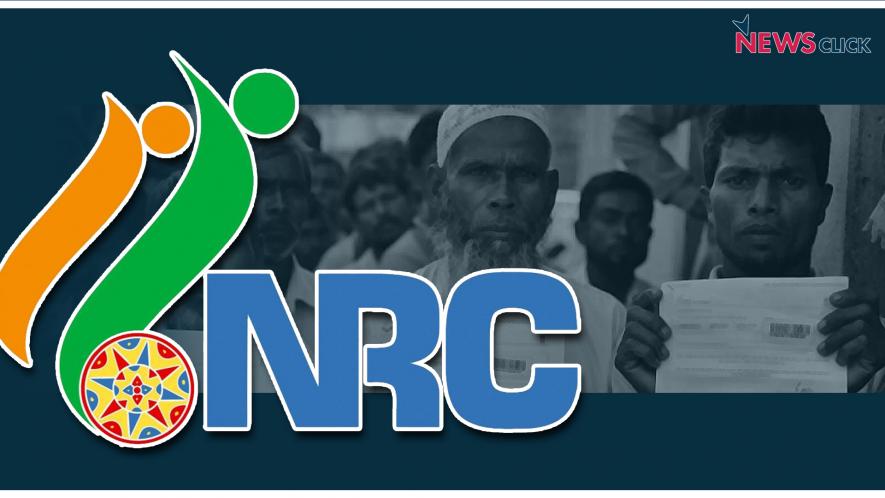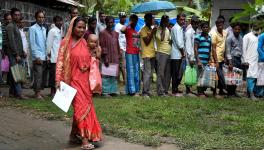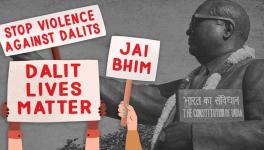Is The Opposition Playing into the Hands of BJP on the NRC Issue?

Opposition parties have been raising a furore over the National Register of Citizens (NRC) over the past two days. The Bharatiya Janata Party (BJP) has branded their objections as anti-Assamese and discriminatory. This is certainly a predicament the opposition has found itself in. The politics around the NRC and the immigration issue in Assam falls into a particularly grey area whether one attempts to grapple with the issues ideologically or even in terms of international humanitarian law.
Read More: Updating the National Register of Citizens (NRC) in Assam and What it Means
The opposition bombarded the government with allegations of bias in preparing the NRC, despite the exercise having been initiated by the Supreme Court. They correctly pointed out the humanitarian angle to the crisis that the NRC is likely to generate. They raised cases where people from other states of India have not found their names on the list despite living in Assam. There is no doubt that there is a section of the population in Assam made up of migrants from other Indian states. However, the BJP countered these objections and concerns with rhetoric. They stated that the opposition was against the 'Indians of Assam'.
Read More: Victory for the People of Northeast
Today's edition ofThe Assam Tribunecarried a surprisingly harshly worded editorial on the manner in which the Assamese community and the NRC exercise is being conducted. Referring to the revelations by one of the major bodies representing Assamese Muslims, the Sadou Asom Garia
Maria Deshi Jati Parishad, the editorial stated:
“It is disgusting to learn from the Sadou Asom Garia Maria Deshi Jati Parishad, an organization of indigenous Assamese Muslims, that an international fundamentalist force was trying to incite them into joining their anti-NRC campaign.”
The editorial also raised objection at Avaaz's portrayal of the exercise as well as the manner in which it had been reported in the international press. Taking umbrage at Mamata Banerjee's stand on the NRC the editorial stated:
“West Bengal’s Mamata Banerjee is up to her old tricks again, though her tag is different. She is playing to the gallery by dubbing the NRC process as anti-Bengali, a dastardly attempt to drive a wedge between communities in a potentially volatile situation.”
What should worry those from outside the state is that the tone and the mood reflected in this editorial may actually represent what is prevailing among the Assamese people. That the rest of the country and the international community is against their legitimate right to safeguard their homeland. This in turn could lead to a siege mentality. Thus, playing right into the hands of the BJP who, at present appears to be the only major political party in favour of the NRC.
While the events have been unfolding, the Supreme Court passed an Order yesterday in the matter of Assam Public Works v. Union of India – the petition behind the entire process. The Court took note of the state coordinator Prateek Hajela's report on the progress. According to the Order, “[T]he total number of persons included in the said Complete Draft NRC is 2,89,83,677 leaving a total of 40,70,707 as ineligible for inclusion. Out of the aforesaid 40,70,707 names, 37,59,630 names have been rejected and 2,48,077 names were kept on hold.” After Hajela's statements regarding the timeline for filing claims and objections, as well as publishing the final NRC, the Court observed that “what has been published is only the Complete Draft NRC which naturally being a draft cannot be the basis of any action by any authority”.
This Order of the Court represents a very different picture from what has been represented. The Supreme Court has noted that a grievance redressal mechanism will be put in place. It is still too early to declare the entire exercise as flawed until the final list is published. On the one hand, statements such as 'people being rendered stateless' does get viewers, on the other hand, it can only aggravate the alienation a society perceives after witnessing numerous ethnic insurgencies and riots.
Ironically, the Durban Declaration which bars xenophobia and racism against both migrants and immigrants also makes special concessions for 'indigenous people'. Another related international convention is the United Nations Declaration on the Rights of Indigenous Peoples. Article 5 of the declaration states:
“Indigenous peoples have the right to maintain and strengthen their distinct political, legal, economic, social and cultural institutions, while retaining their right to participate fully, if they so choose, in the political, economic, social and cultural life of the State.”
It is on this basis that the objections on humanitarian grounds become problematic. Assam is home to a considerably large population which is officially recognised as 'tribal'. Consequently, the Scheduled Tribe status is seen as a mark of being 'indigenous'. In international law, the International Labour Organisation under Article 1 of the Indigenous and Tribal Peoples Convention, has defined 'indigenous' as:
“... on account of their descent from the populations which inhabited the country, or a geographical region to which the country belongs, at the time of conquest or colonisation or the establishment of present state boundaries and who, irrespective of their legal status, retain some or all of their own social, economic, cultural and political institutions.”
Evidently, the issues have become more complicated than the simple 'communal' narrative which seems to work better in the rest of India.
Read More: The Conflicting Views on Minority Status in Assam
When clashes occur between a tribal majority and a non-tribal minority, what is the correct position to take? The tribal majority will likely cite control over land – both forest and agricultural – as the factor behind the clash. The non-tribal minority may refer to the land being vacant as their reason for settling. Which view one subscribes to would depend on one's ideological position.
Read More: Brahma Committee Report Stresses on the Danger of Illegal Immigration to Land Holdings
The BJP is most likely to attempt portraying itself as the 'champion' of the 'indigenous' communities. This formula has worked for the party in Assam and could be replicated with varying success in other states in the region where strong 'sons of the soil' sentiments exist. Whether the opposition can pull the rug from under the BJP's feet will depend on how sensitively they can balance the concerns of 'locals' without infringing the rights of 'outsiders'. This should be a greater concern as the 2019 polls draw near.
Get the latest reports & analysis with people's perspective on Protests, movements & deep analytical videos, discussions of the current affairs in your Telegram app. Subscribe to NewsClick's Telegram channel & get Real-Time updates on stories, as they get published on our website.
























